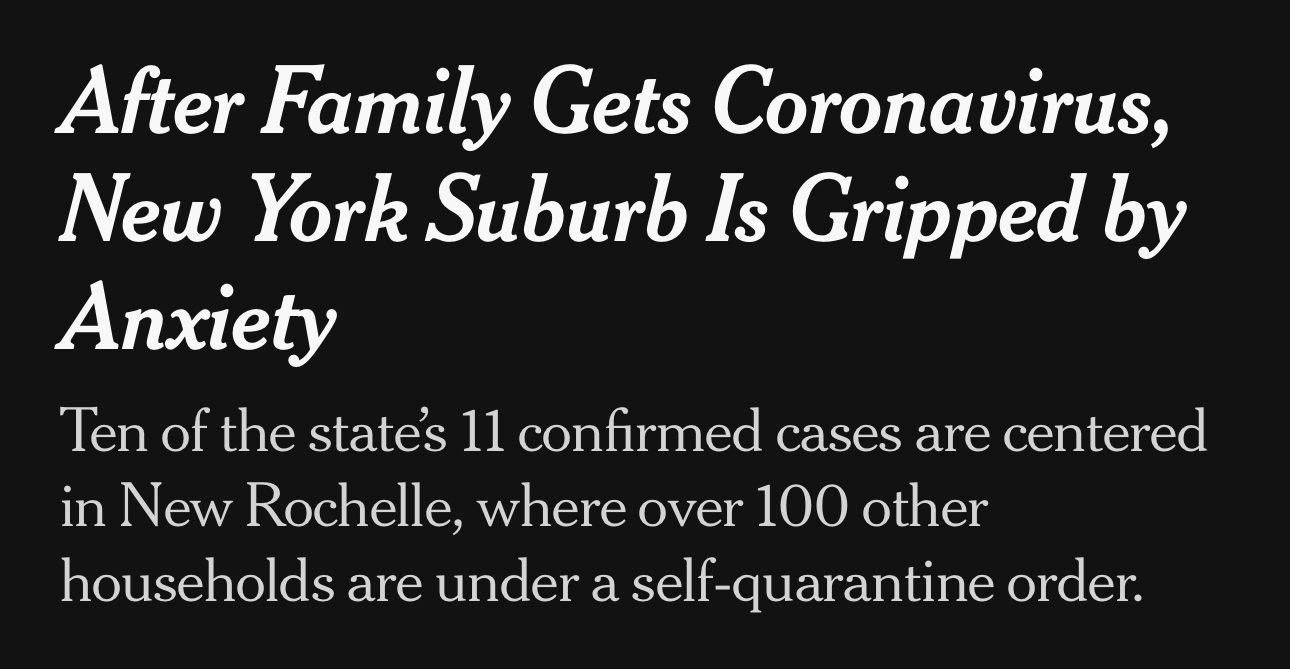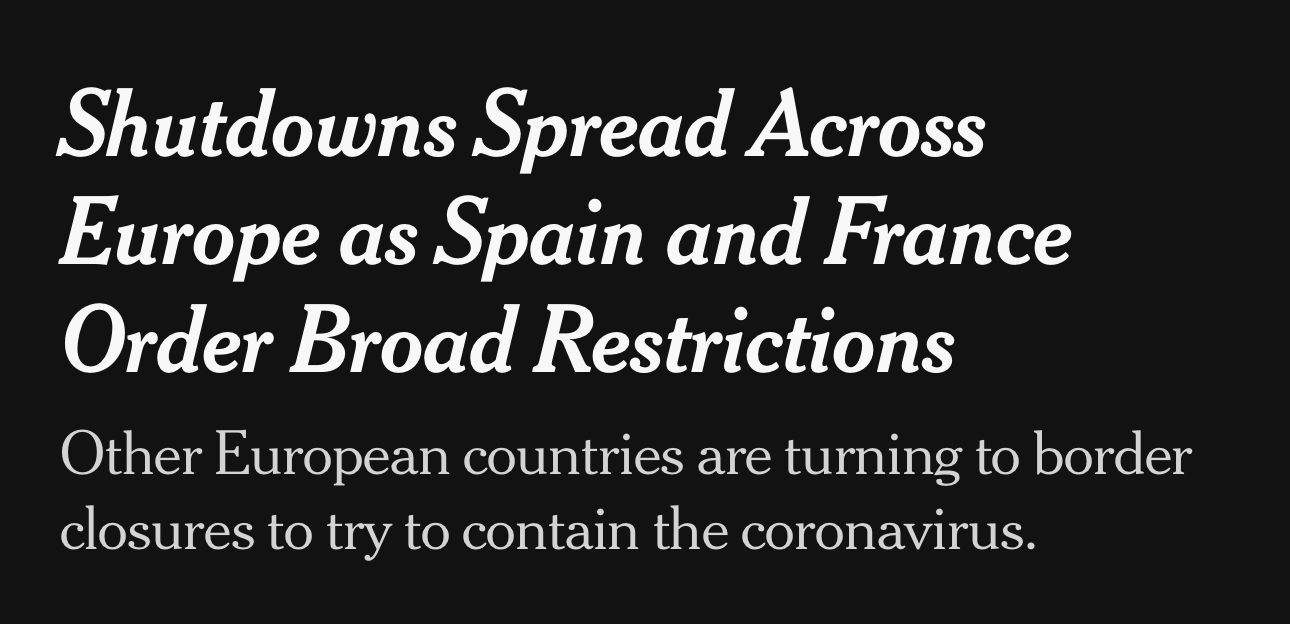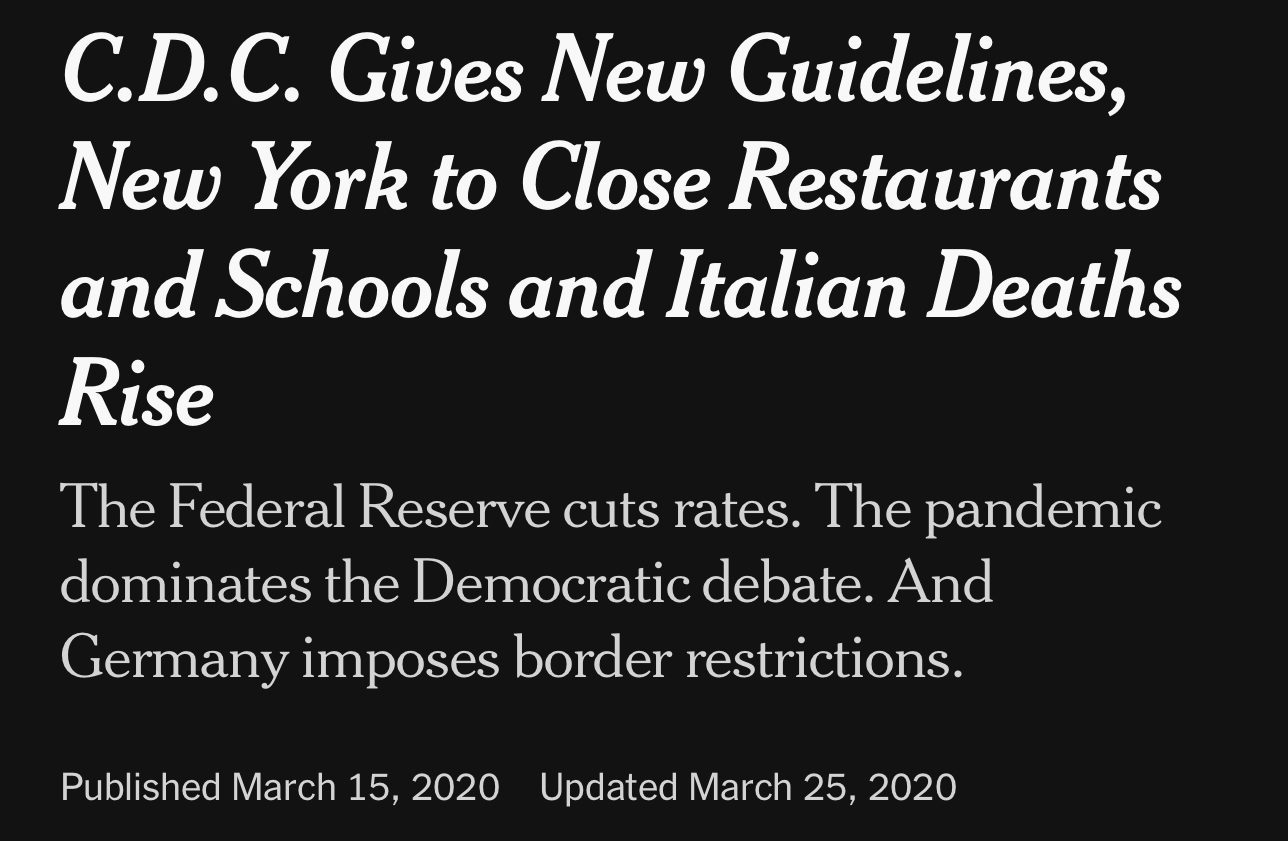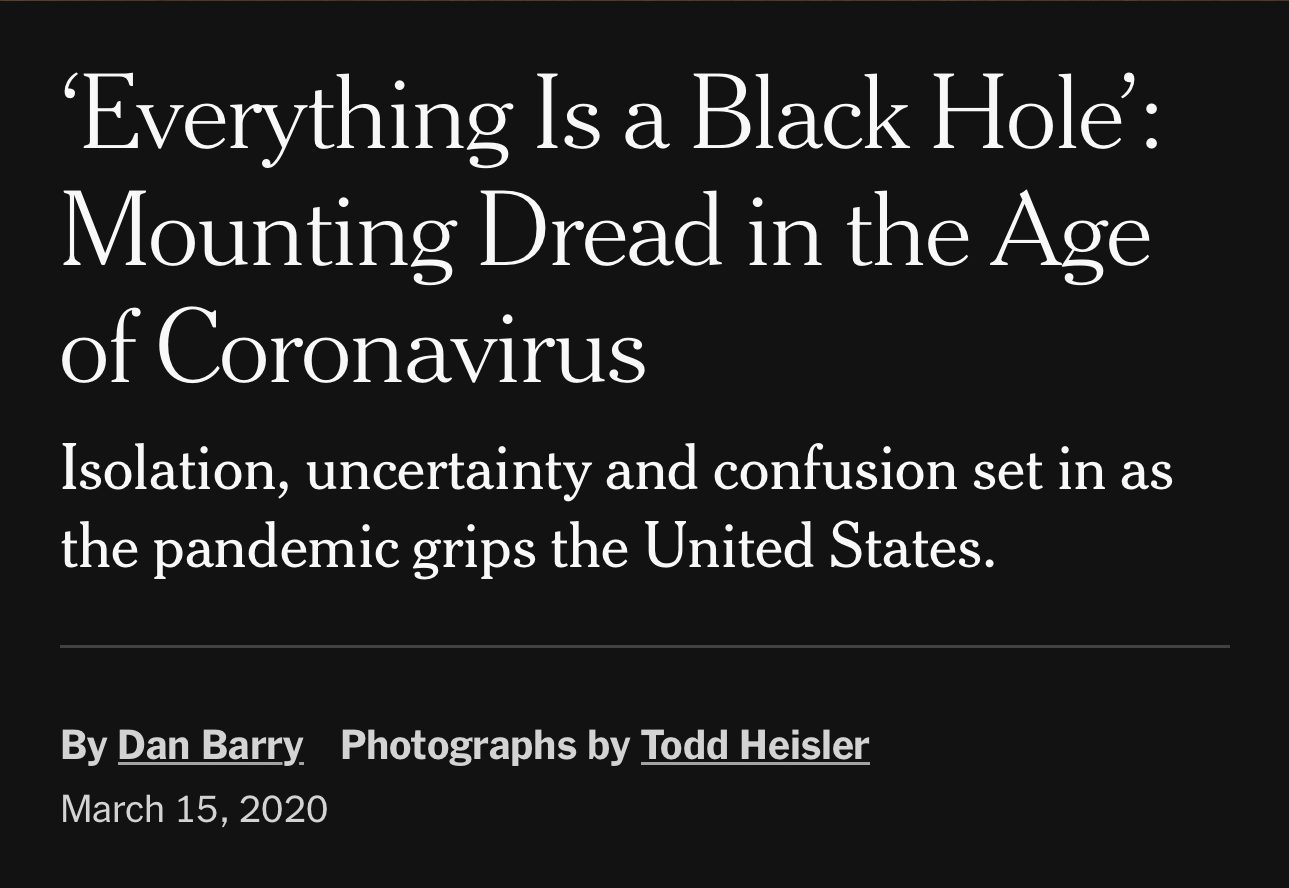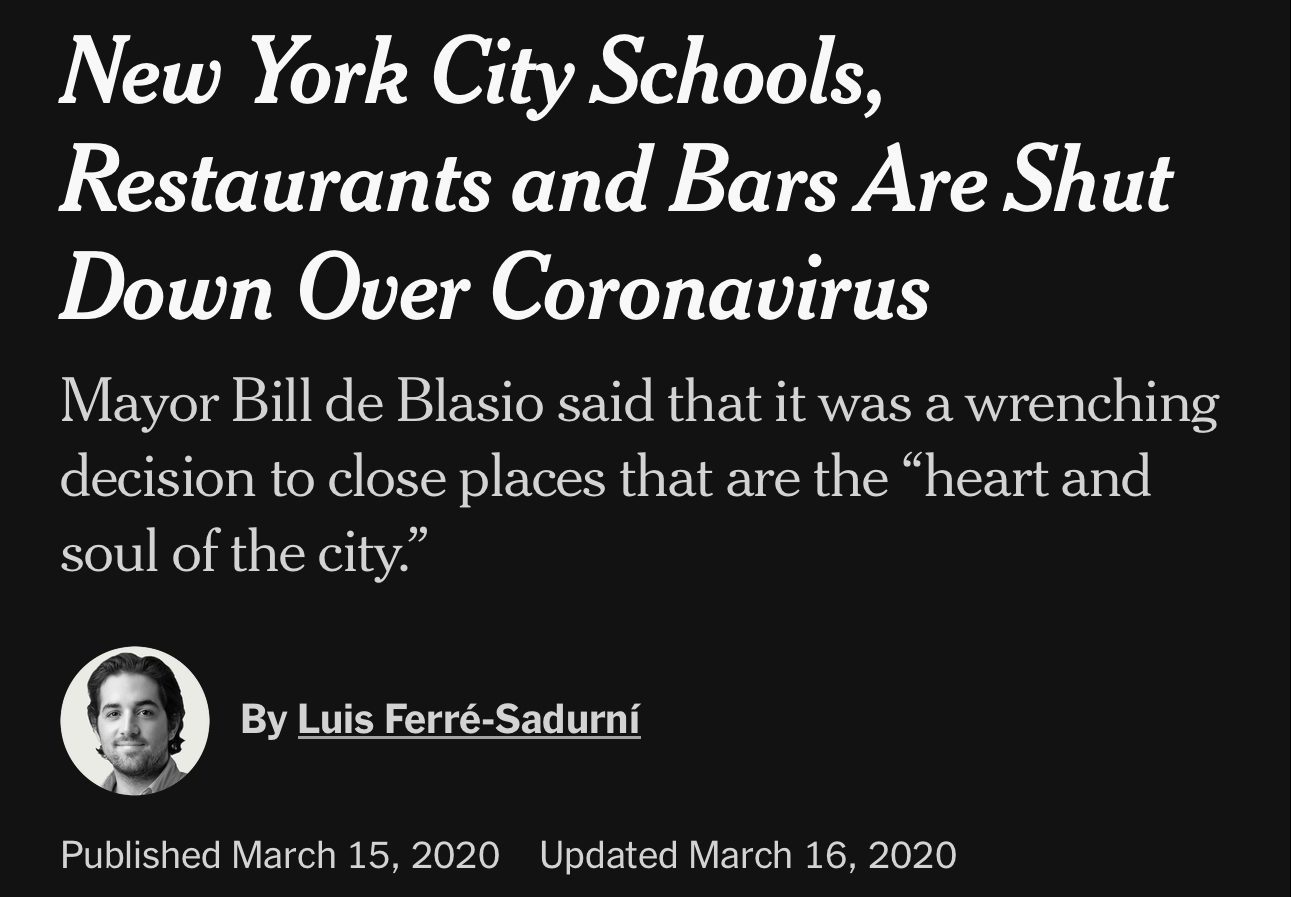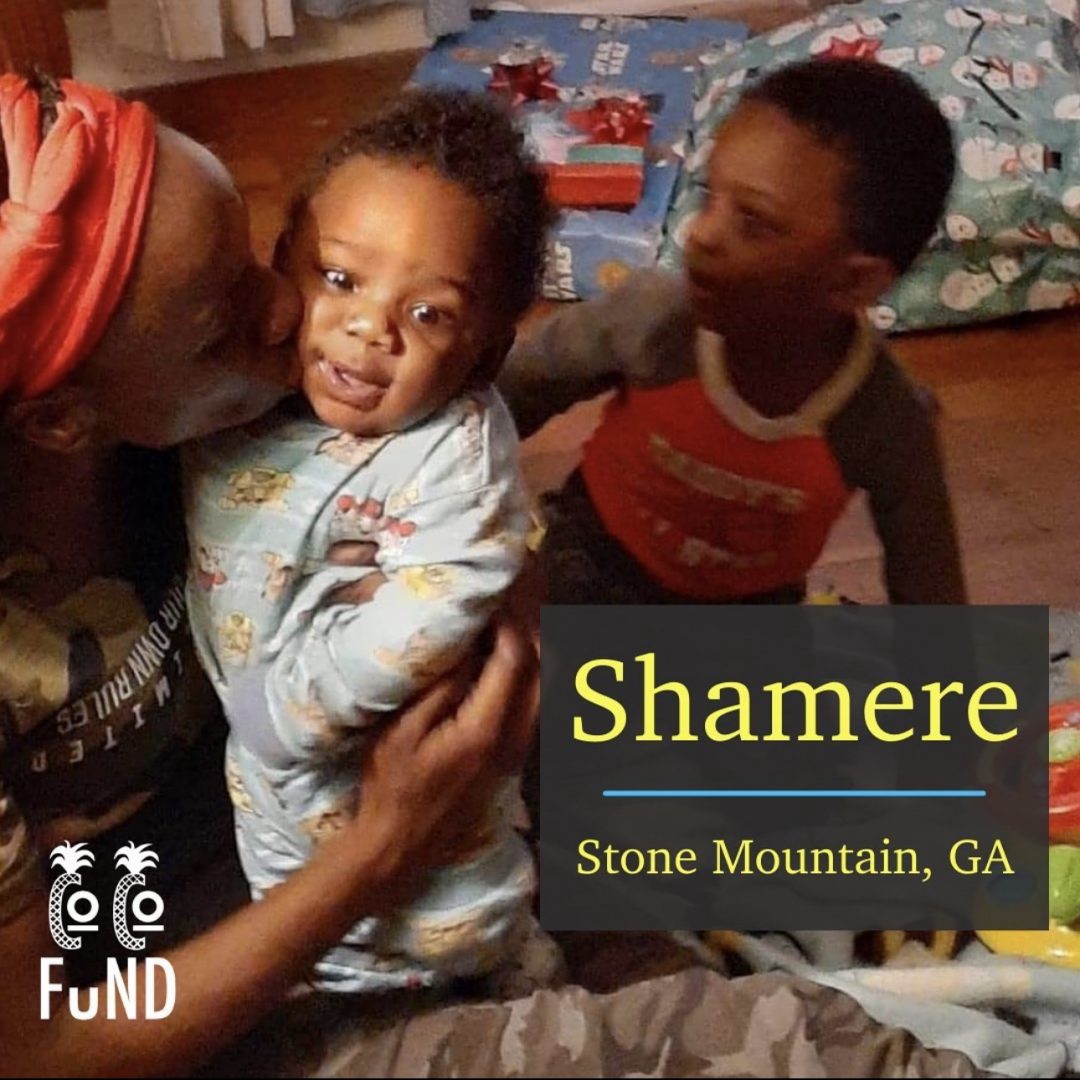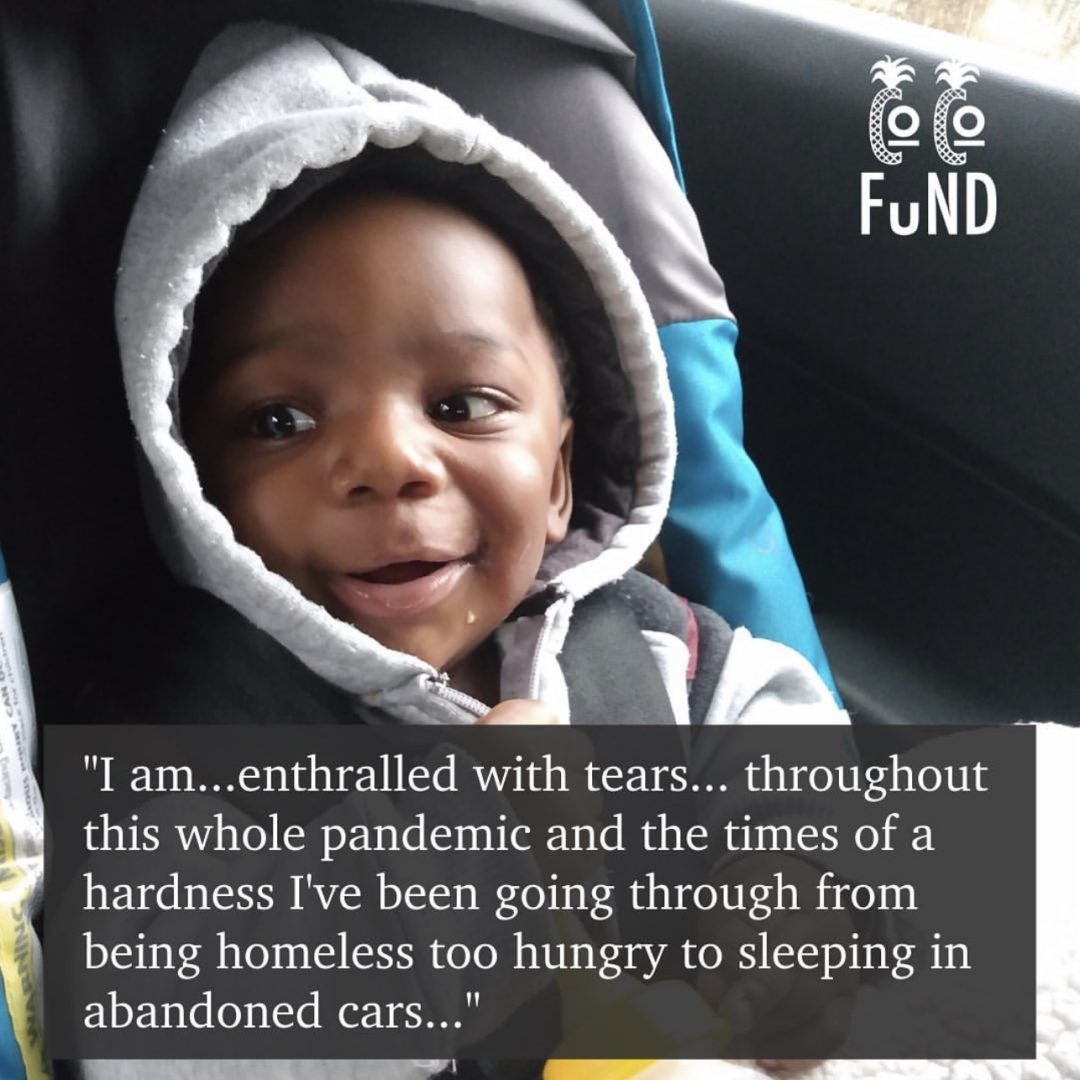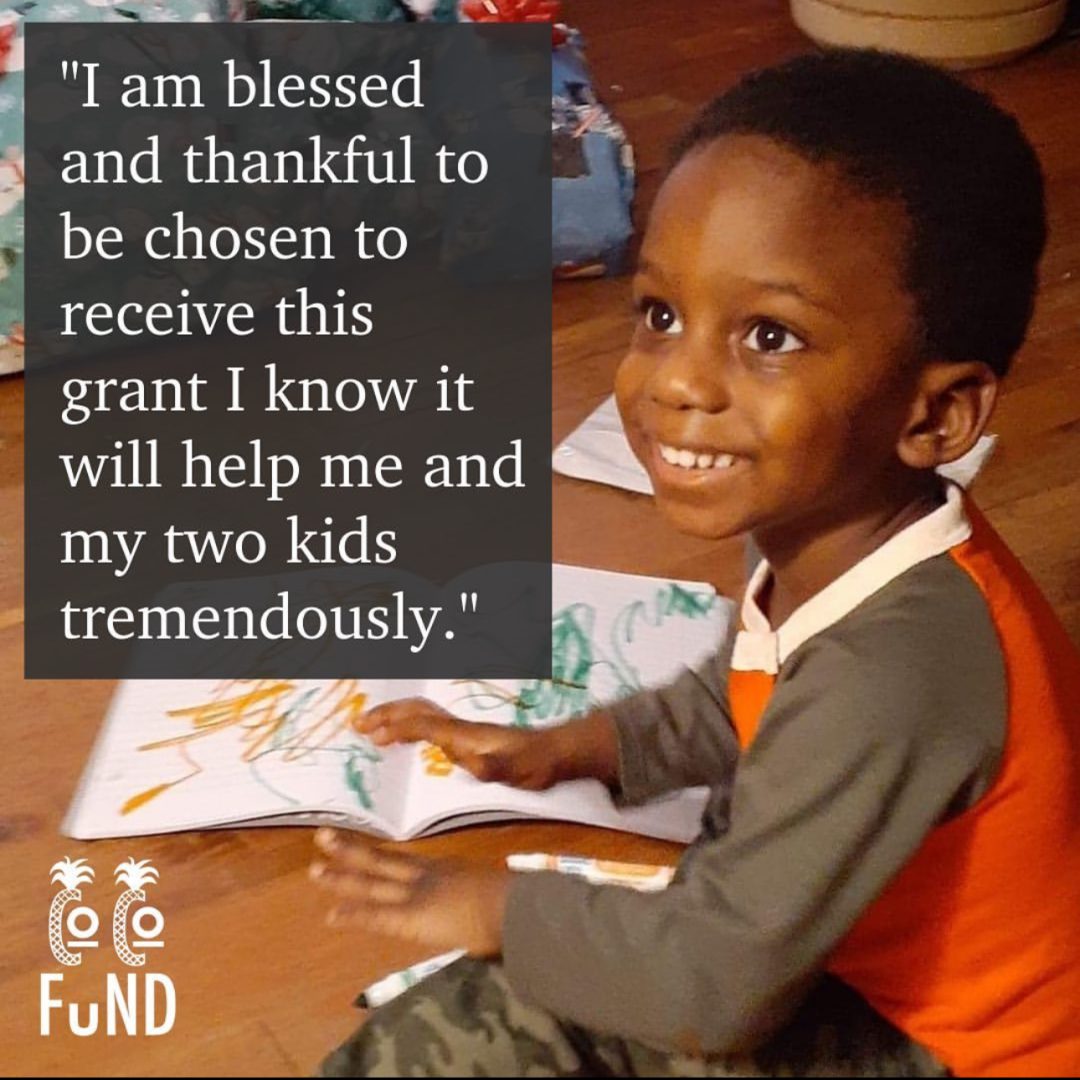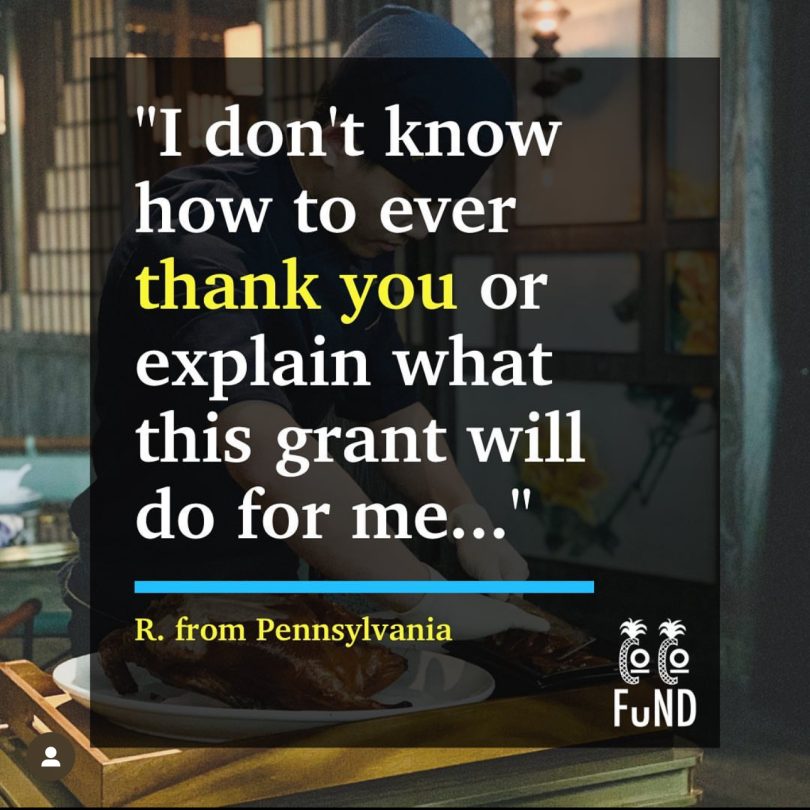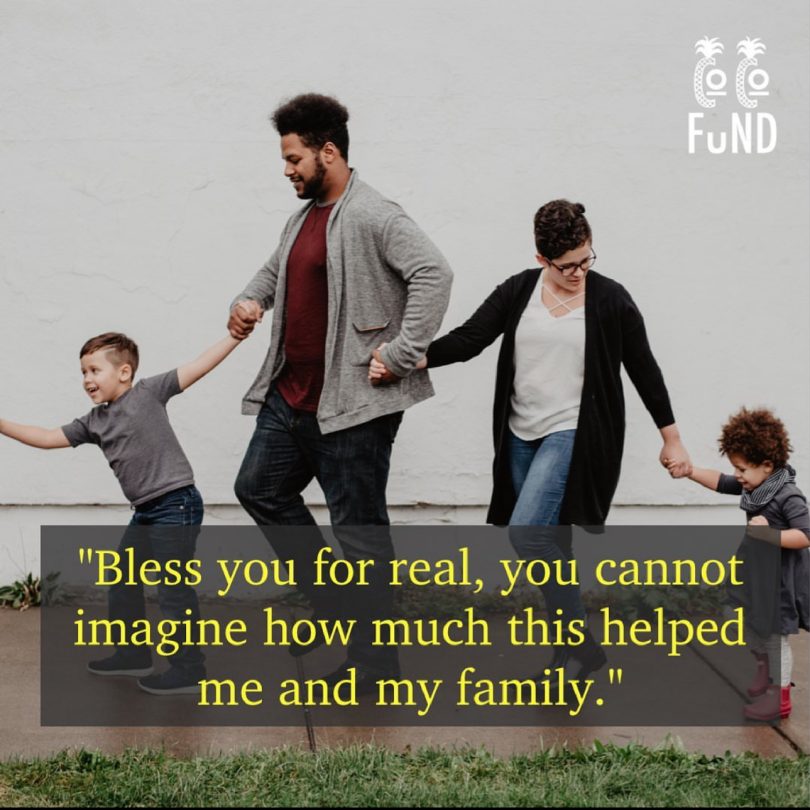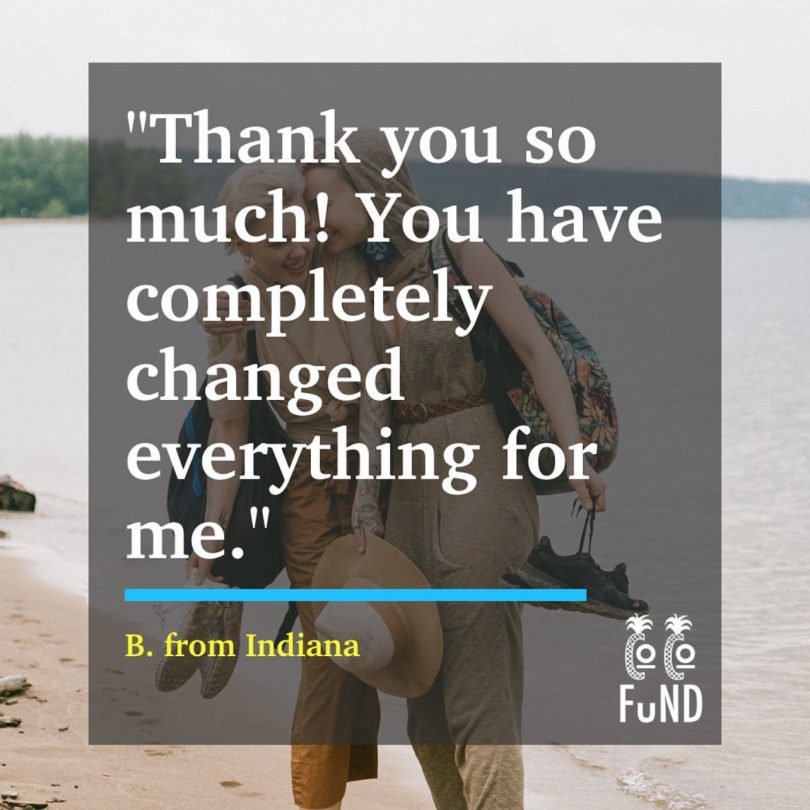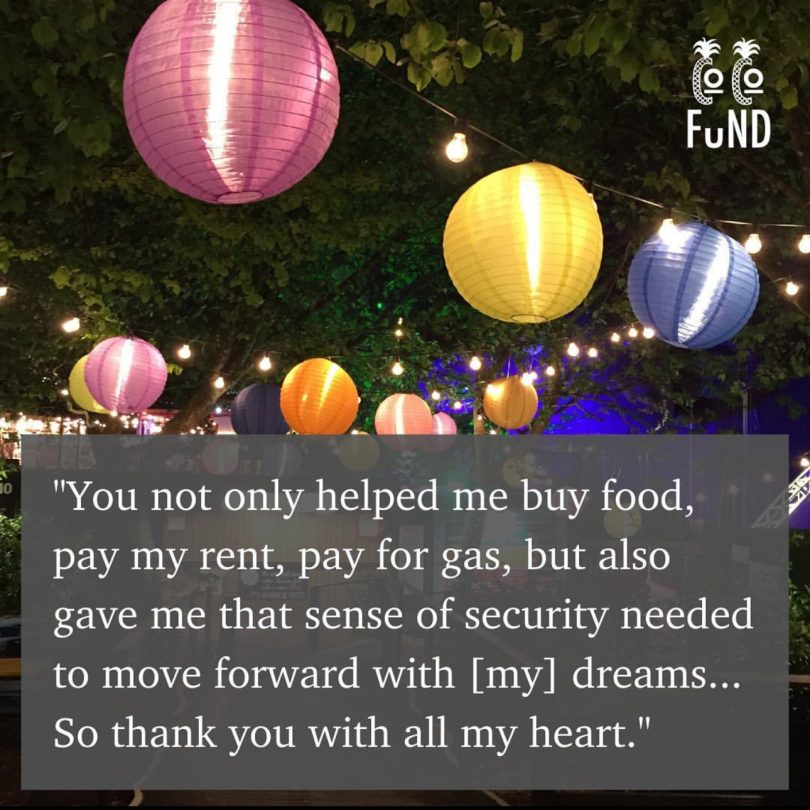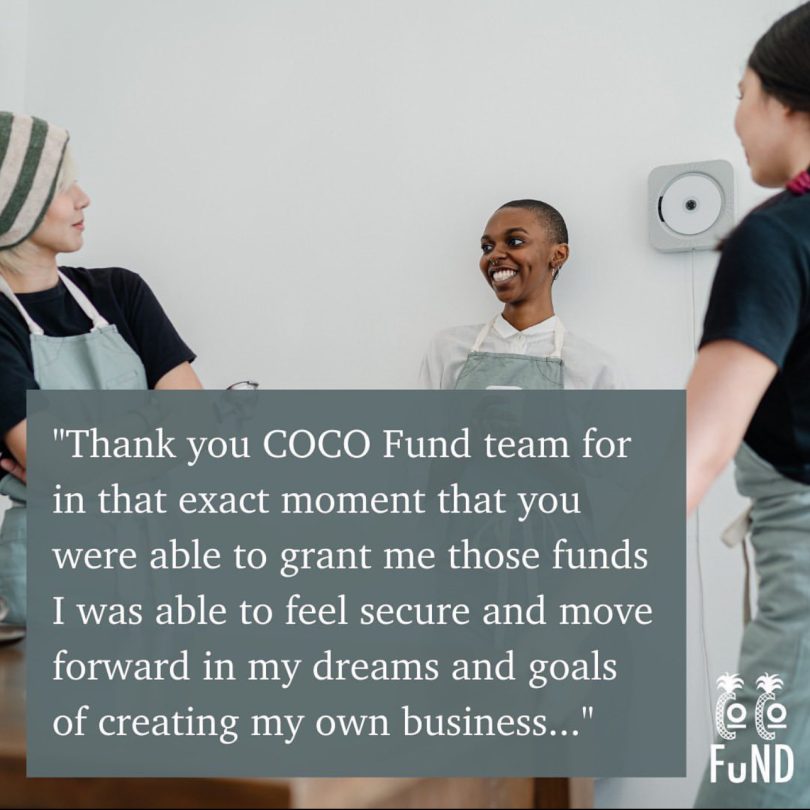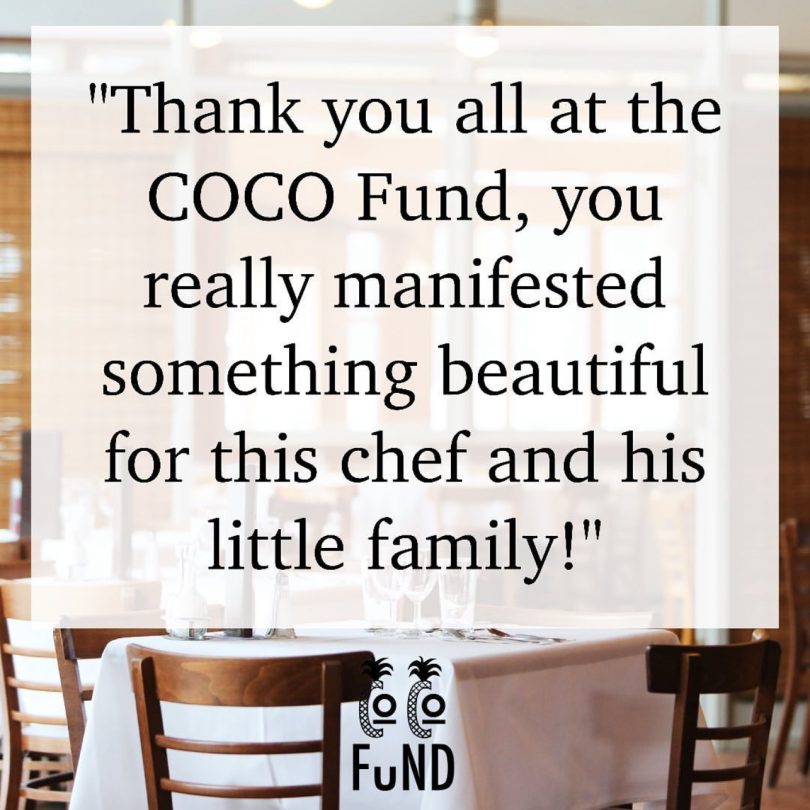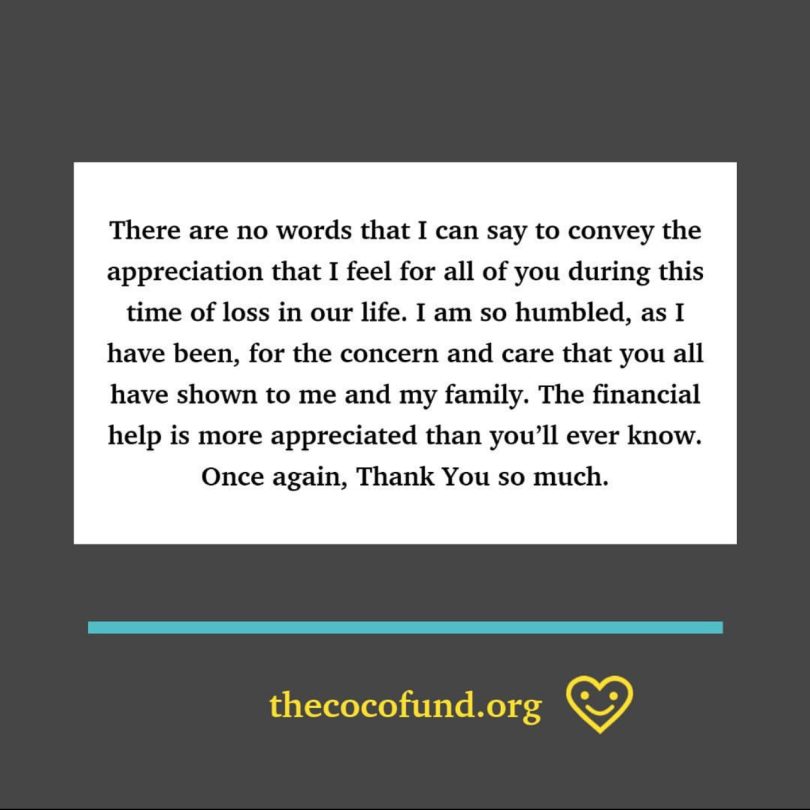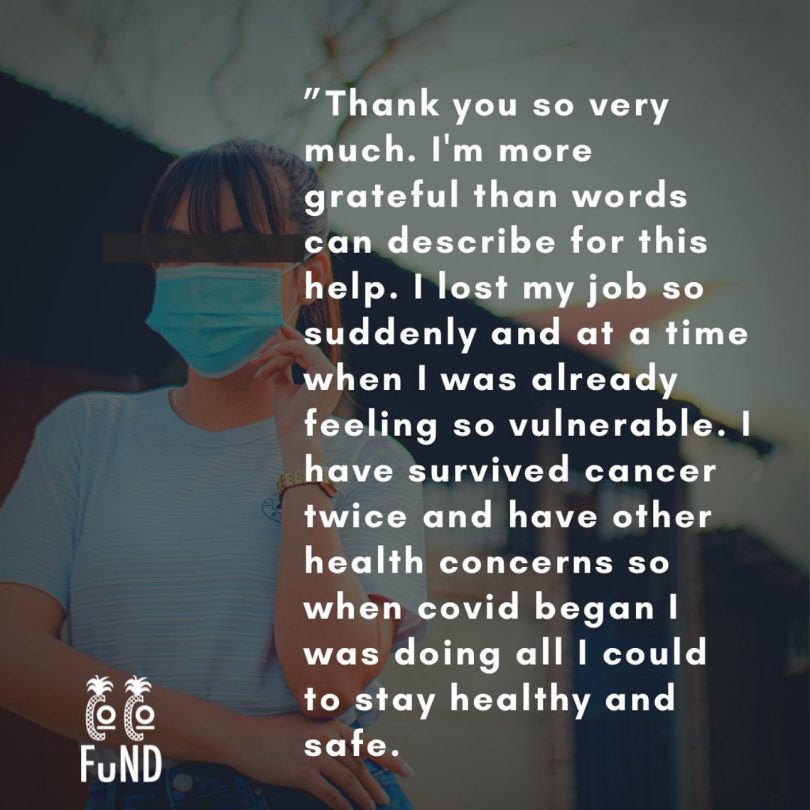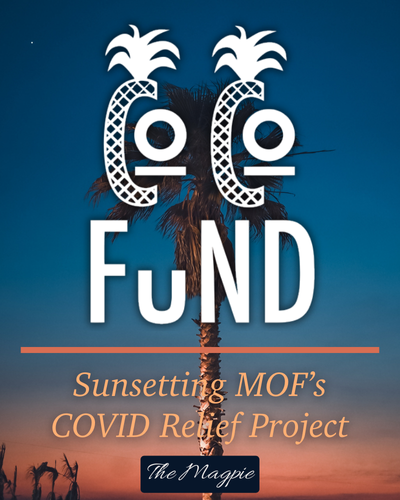
The COCO Fund: Sunsetting MOF’s COVID Relief Project
–
–
COVID-19: a term that went from meaningless to essential almost overnight. A disease that was once as abstract to the 2020 world as the Black Plague became a part of a collective waking nightmare (and, strangely, made the Black Plague seem much less abstract).
For all of the frivolous debate that the pandemic and shutdowns have brought about, there are a few things that are absolutely clear about the COVID-19 pandemic:
- COVID-19 is a terrible respiratory virus that has killed millions of people and traumatized families & medical staff worldwide.
- Its fallout left an indelible impact on global culture and history, as well as the way every citizen of the world lives their lives.
- It revealed our society’s greatest vulnerabilities while illuminating our greatest strengths.
This last point is most apparent in the charity and organizing work that went on during COVID. Folks across social strata came together to help our most essential workers: food workers, medical personnel, first responders, and more.
For March On Foundation, this manifested mostly in supporting restaurant/hospitality workers and medical staff.
Through the initiative of numerous caring people and the March On Foundation team, several COVID relief projects came to life: Dine11, PLAted LA, and the subject of this questionnaire, the COCO Fund.
The COCO Fund was born when a scientist-turned-restauranteur named Michael Brotherton approached Penelope Chester, who he knew had expertise and connections to the nonprofit world. He wanted to create a rapid-relief fund for restaurant & hospitality workers he knew would suffer as a result of the shutdowns.
Penelope, a dear friend of the Foundation and former COO of our partner organization, connected Michael with our then-Executive Director Eve Hurwitz.
The rest is history: Michael got his people together, Penelope and Eve got theirs. Together, we built this project from the ground-up, creating a sustainable infrastructure that raised and distributed over $86,000 in what we called “microgrants” of $500.
The need was just as bad as we figured it would be, if not worse. We received thousands of applications. As you will see from the responses in the questionnaire, the constant lack of funds to meet this demand weighed heavily on the entire COCO Fund team.
By the time we gave our last grant in 2022, we had distributed 176 microgrants of $500 across 30 states to restaurant and hospitality workers in dire straits. We also gave six “nanogrants” of $50 for applicants early in the process who had a critical, specific need (for instance, when a transgender applicant reported reusing their needles for their testosterone injections).
We hope this questionnaire can serve as a resource to future activists and organizers wanting to start their own projects. If you have any questions about the COCO Fund and starting a project like it, please feel free to reach out to hello@mo-foundation.org.
Before we launch into the questionnaire, we want to say a HUGE and heartfelt thank you to all of the COCO Fund’s team members and supporters: we couldn’t possibly have done it without you!
The COCO Fund team
Michael Brotherton, Emma Buchman, Jessica Capone, Penelope Chester, Alex Faltine, Toby Graff, Eve Hurwitz, Rachel Labare, Brenda Panama, Esther Pang, Beth Robertson, Carly Rhodes, & Our Development Advisor (who prefers to stay anonymous, but they were amazing so I want to include them).
Colleagues & Friends
Erika Adams, Eater; Ronit Batra, Help SOAR; Jennifer Bui, Okie Dokie Foodie; Jenny Dorsey, Studio ATAO; Karen Fu, Restaurant Workers Community Foundation (RWCF); Amanda Gundersen, Another Round Another Rally; Leigh Ann Heidelberg; Kathryn Lott, Southern Smoke; Joe Manis, Mobile Giving Foundation; Jen Marshall, Community Spirit Co.; José Tena, Humans of the Kitchen; & Andrew Testa, Verizon.
Major COCO Fund Contributors & Fundraisers
Aiden & Louis Ardine; Bad Business Club; HQ Trivia; Jen Scribbles; Mobile Giving Foundation; Restaurant Workers Community Foundation (RWCF); Stitch, Please; TrueCooks; and countless donations from individual donors. Thank you!
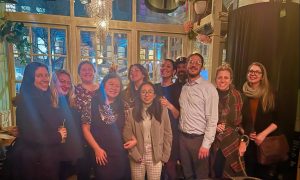
*All responses were collected between March 21 – April 17, 2024.*
Tell us about you: who are you and what do you do?
I’m the board chair for March On Foundation and the CFO for Future Coalition. I am a combat veteran, mom of five, interfaith minister, happiness coach, and vocalist.
Carly Rhodes, Application & Grant Reviewer
For most of my adult life, I have worked in and managed restaurants. During the pandemic, I was working at 2 restaurants that closed down which gave me the opportunity to volunteer for the COCO Fund. I am friends with Michael Brotherton and was happy to help with this venture.
Jessica Capone, Application & Grant Reviewer
Originally from Italy, I spent 15 years in the hospitality industry, specializing in management, sales and business development, before transitioning to pursue ceramic art as my full-time occupation.
Brenda Panama, MOF Research Intern
My name is Brenda Panama. I am currently a junior at Hunter College studying Biochemistry.
Anonymous, Development Advisor
I’m a development consultant, primarily supporting nonprofits in institutional research, writing, and management.
Emma Buchman, Grants & Social Media Manager
My name is Emma Buchman – I’m a writer, organizer, and activist based near Annapolis, MD. I currently serve as the digital content director of March On Foundation, director of March On Maryland, editor of our blog The Magpie, a writer and researcher at Studio ATAO, and a board member of the Maryland Lynching Memorial Project.
–
Have you ever worked in the restaurant & hospitality industry? If so, when? What was your job?
Eve Hurwitz, Cofounder
Yes, I have held numerous jobs in the industry through the years. I’ve held every position from busgirl to hostess, college dining hall server and dishwasher to ice cream scooper, pizza place server to fast food supervisor.
Carly Rhodes, Application & Grant Reviewer
My first job in a restaurant was when I was 17 and I have worked in the industry my whole life. I have been a server, hostess, bartender, manager, and restaurant consultant. 2 years ago I left the hospitality industry.
Jessica Capone, Application & Grant Reviewer
Yes, I worked 15 years in hospitality management, sales and business development.
Anonymous, Development Advisor
I’ve worked in the hospitality industry throughout my early life, as a cleaner in hotels and then later as a private caregiver in assisted living spaces. I’ve never worked in the restaurant industry, but my mother worked as a waiter their whole career.
Emma Buchman, Grants & Social Media Manager
I have a couple years of experience in the restaurant and hospitality industry, mostly from my time in high school and college. At 14, I was a cashier at our local donut shop for the summer. Later, when I came back from a gap semester abroad in 2012, I worked as a cashier and server at La Madeleine when it had a location at the Annapolis Mall. I worked there for over a year until the location closed and I was laid off.
Where were you at the beginning of the COVID-19 pandemic? What did you expect to happen?
Eve Hurwitz, Cofounder
I was living in Rockville, Maryland, and because of the restrictions, I was unable to get unsafe conditions in my house fixed, and I had to move into an RV full-time with my family. That ended up being a sort of blessing because we were very self-contained and didn’t have a lot of contact with people for a long time. I worked remotely from the RV and I honestly had no idea it was going to happen.
Carly Rhodes, Application & Grant Reviewer
I lived in Lake Tahoe, California. I expected the shut down and seriousness of the pandemic to last a few weeks, at most.
Jessica Capone, Application & Grant Reviewer
I was laid off one week after the lockdown began in late March 2020. It was confusing and scary.
Brenda Panama, MOF Research Intern
I was a junior in high school during the beginning of the pandemic. When school was canceled for 2 weeks and shifted to online we all thought it would just be that, 2 weeks. But we all know it was more than two weeks. I never imagined that so many people would die and the world would eventually stop for a moment.
Anonymous, Development Advisor
I was in NYC at the beginning of the pandemic. My eldest kid was sick and we were trying to find a way for them to go back to school, when their doctor called us to say, “you won’t have to worry about school because we’re going to see things we’ve never seen before.” So I went from expecting maybe two weeks of staying at home to expecting “something I had never seen before,” and began planning a way back home.
Emma Buchman, Grants & Social Media Manager
Nothing in my expectations could have come close to what we experienced during COVID-19.
In March 2020, I was the assistant director of March On Maryland, working under our Executive Director Eve Hurwitz at the time. We were working hard on the national expansion of our projects, having just adopted a DBA name of March On Foundation.
As the pandemic became more concerning and a shutdown became imminent, we braced for how we would be best positioned to help, knowing that we may be the ones who needed help in the end.
–
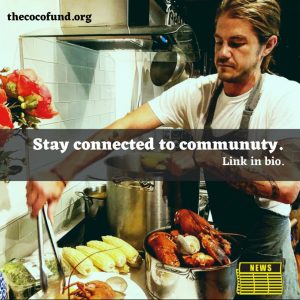
How did you first get involved with the COCO Fund?
Eve Hurwitz, Cofounder
When the pandemic hit, I was still the Executive Director of March On Foundation. We were contacted by someone who wanted a vehicle for helping industry workers get financial help in a time of restaurant closings and widespread fear. We worked together quickly to build a microgrant program for people impacted.
Carly Rhodes, Application & Grant Reviewer
Michael Brotherton asked if I’d like to help out.
Jessica Capone, Application & Grant Reviewer
Michael and Penelope asked me to join.
Brenda Panama, MOF Research Intern
I got involved with the COCO Fund through MOF.
Anonymous, Development Advisor
I began working with the COCO fund as a consultant in Spring 2020, invited to join in and provide support to the core team.
Emma Buchman, Grants & Social Media Manager
As the official shutdowns began in March 2020, multiple caring individuals came to March On Foundation, our executive director Eve, and then-COO of our partner organization March On, Penelope Chester.
While their industries were wonderfully varied from film production to yoga instruction, the majority of them had ties to the restaurant and hospitality industry. Some also had loved ones working on the frontlines in hospitals and emergency rooms treating COVID patients.
As they saw the devastation that the pandemic was beginning to cause, these folks were moved to help. One of them was Michael Brotherton, a restaurateur in New York at the time. He wanted to create a rapid-relief fund that would support restaurant and hospitality workers during this time of chaos. He recruited a couple of his colleagues, Carly Rhodes and Jessica Capone, to support his fledgling project (both of them would stay with the COCO Fund essentially until the end of our activities). He named it the COVID Community Fund, or the COCO Fund.
Another project similar to the COCO Fund that developed in the same way was Dine11, which at its height operated in eight locations across the United States.
–
What were your primary responsibilities with the COCO Fund?
Eve Hurwitz, Cofounder
Initially I was very involved and making payments. As the program grew, we added staff to assist.
Carly Rhodes, Application & Grant Reviewer
Reviewing grant applications.
Jessica Capone, Application & Grant Reviewer
Logo design and grant reviewer.
Brenda Panama, MOF Research Intern
I was in charge of the research database that included different community resources. I also made a couple of one pager reporters about the panels that would occur.
Anonymous, Development Advisor
I worked with the team to identify foundations or companies that would support the work and help to deliver more funds to affected workers.
Emma Buchman, Grants & Social Media Manager
I was the grants manager and a member of the application review committee. I also managed the social media account and designed its content from the fall of 2020.
COCO’s 79th grantee, Shamere from Georgia. She was kind enough to share a few words with us about receiving the grant (and these photos of her adorable kids!).
What was the most meaningful part of working with the COCO Fund?
Eve Hurwitz, Cofounder
The notes we received about how we had helped people and families.
Carly Rhodes, Application & Grant Reviewer
Being able to help people who really needed it.
Jessica Capone, Application & Grant Reviewer
Reviewing grants offered me a profound opportunity to make a meaningful difference (even if small) in the lives of those who are most vulnerable. It served as a reminder of the importance of compassion, solidarity, and collective action.
Brenda Panama, MOF Research Intern
The most meaningful part was spreading awareness about the hospitality industry’s workers hardships. I feel that the COCO Fund did a great job in helping and showing the difficult times these workers were going through as a result of the pandemic.
Anonymous, Development Advisor
Everything – seeing people come together to do everything they could to support restaurant workers was a bright light in a really difficult time. Knowing the difference every dollar made was powerful, and hearing the stories from the people who applied was heartwarming.
Emma Buchman, Grants & Social Media Manager
Knowing that I was doing something tangible that could help people in an emergency. A lot of nonprofit work feels abstract or distant. Victories come years apart, if at all. So to have a fund that we rapidly built from the ground up specifically to help people in a scary time of our history, where we would have victories every week, sometimes every day, was a powerful and heartwarming feeling. My time in general with COCO was very meaningful to me.
–
What made the COCO Fund unique as an organization?
Eve Hurwitz, Cofounder
It was a mixture of staff, volunteers, and recipients that came together to help industry workers. The solidarity there is unlike other industries and it showed. People showed up.
Jessica Capone, Application & Grant Reviewer
Providing individuals and families with modest financial assistance was immensely beneficial, covering essential expenses like rent, car payments, or electricity bills. This support has prevented collections, evictions, and provided stability during times of financial hardship. Even a single week or month of assistance can make a significant difference when someone is trying to get back on track.
Brenda Panama, MOF Research Intern
The COCO Fund had a strong group of people who were passionate about what they do and it showed in every event and every grant that was given.
Anonymous, Development Advisor
I think it was an extremely collaborative organization that was open to different ways of working and trying everything they could to make a difference. From webinars to silent auctions and everything in between the team didn’t hesitate to try new things.
Emma Buchman, Grants & Social Media Manager
Our team. The COCO Fund’s model isn’t new: there are many programs, projects, and even foundations that specialize in the type of grant-giving that the COCO Fund did.
It was our team that made us unique. We got an amazing running start because of Michael, Eve, Penelope, and Alex (and, if I may be so bold, myself). We had an amazing application review team in Michael, Carly, Jessica, Alex, and later Esther. Our intern Brenda (who’s currently a pre-med student) spent countless hours building resource lists of food banks and shelters in cities with the most COCO Fund applicants.
I was also super proud that our team was predominantly female.
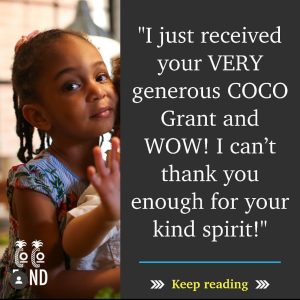

A note from the COCO Fund’s 61st grantee, G. from Ohio. Unless specifically indicated by the grantee, grantee names were always replaced with the first letter of the grantee’s name for privacy.
What is the biggest lesson we can learn from the COVID-19 pandemic and its impact on the restaurant and hospitality industry?
Eve Hurwitz, Cofounder
That this country sure likes going out to eat and drink, but when they can’t, people suffer. (I may amend this.)
Jessica Capone, Application & Grant Reviewer
The importance of resilience and adaptability.
Anonymous, Development Advisor
I think it was clear that our societies didn’t have safety nets in place, and that funding previously wasn’t responsive to building safety needs. We’re still reeling from an emergency funding cycle, and there needs to be early investment in core support – building the structures to step in before the emergency occurs.
Emma Buchman, Grants & Social Media Manager
One, that societal chaos is cyclical and we can therefore learn from it. We have to make it a priority to learn from both past successes and mistakes. It also showed us that even in the midst of an unprecedented pandemic, society still managed to function because enough people worked together to make it happen. And that’s pretty cool to me.
Two, that the restaurant and hospitality industry is far more vulnerable than people think, and we need to extend that concern to those in the agricultural industry as well.
–
How can we embrace the COCO Fund’s mission outside of emergencies? What can we do to help restaurant and hospitality workers in the long-term?
Eve Hurwitz, Cofounder
Raise awareness of the fragile state and low pay. Aggressive fundraising to create a reserve.
Carly Rhodes, Application & Grant Reviewer
Pay them a higher wage so they are able to save money or at least attempt to stay out of debt.
Jessica Capone, Application & Grant Reviewer
With 80% of restaurants closing within their first 5 years of operation, the resulting financial and employment uncertainty poses significant challenges, especially for undocumented workers who face additional barriers to accessing support. To address this, the COCO Fund should expand its mission beyond solely providing grants for unemployed hospitality workers and also offer career development resources. This could include initiatives such as providing free uniforms for cooks and waiters, assistance with resume writing, and other support services.
Brenda Panama, MOF Research Intern
The resource page would be a great thing to continue editing. Spread awareness on the subject of tipping in the United States…
Anonymous, Development Advisor
Similar answer to above – fund support structures today, see the gaps in care and advocate for change within these industries so that people aren’t placed in emergencies so immediately/without any course of action.
Emma Buchman, Grants & Social Media Manager
Understand the crucial, intersectional role that food workers in general play in social justice and dismantling white supremacy. Recognize that farmers, agricultural workers, restaurant workers, and hospitality workers are a lynchpin of our healthily functioning society. They need and deserve more attention and definitely more respect than they receive both from the general public and the American government.
Between the tipping system and agricultural exceptionalism, these workers can hardly get a break (pun intended, in some cases). These workers do so much for us every day: they grow our food, revive us with coffee, and shoulder some of our load when we just don’t have the energy to cook tonight. They truly are essential, and we need to make improving their lives economically a priority in advocacy.
Grantees often didn’t send any additional notes after receiving their grants (and we made it clear that it wasn’t a condition of them receiving the grant). So, you can imagine how excited the team got every time a grantee took the time to send us a note…
Stay tuned for a follow-up post with more answers from the questionnaire, where we discuss lessons learned from running the COCO Fund. Check back later this month!
